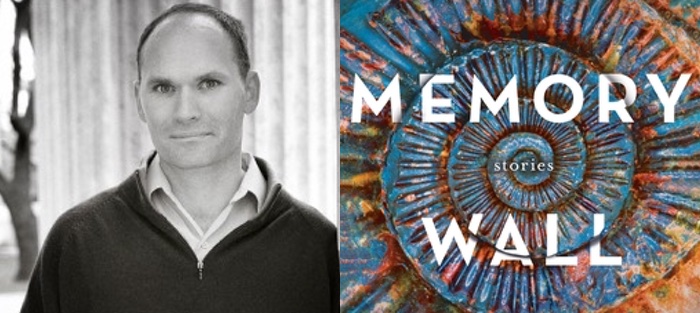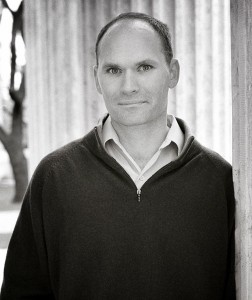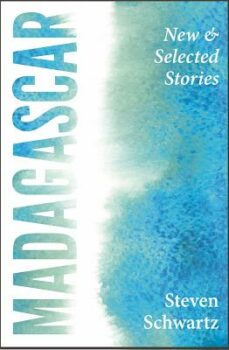Editor’s Note: For the first several months of 2022, we’ll be celebrating some of our favorite work from the last fourteen years in a series of “From the Archives” posts.
In today’s feature, Christopher Mohar talks with Anthony Doerr about his story collection Memory Wall. This interview was originally published on August 4, 2010. Doerr’s latest book, Cloud Cuckoo Land, was published in September.
To read Anthony Doerr’s fiction is to experience the profound curiosity of a scientist or explorer of the unknown world—as readers travel alongside characters obsessed with the poisonous cone snail or the intricate dendritic limbs of snow crystals, we can’t help but be galvanized into a state of child-like wonder at such everyday miracles, from which Doerr masterfully draws out meanings and metaphors that are simultaneously unique to his characters’ stories and universal to the human experience.
Doerr’s newest short story collection, Memory Wall, was published by Scribner at the end of July. Memory Wall continues in the exploratory tradition that made his previous work so successful, yet expands its story forms and subject materials to even more ambitious terrain.
Its stories span four continents, several generations of characters, and subjects as diverse as Lithuanian sturgeon fishing, Alzheimer’s disease, and a childhood perspective on holocaust-era Germany. The title piece is a novella, but achieves a scope that some 300-pages novels would envy; in it, an elderly woman pursues a futuristic technology that promises to save her ailing recollection of her dead husband and former life, but also puts her in danger of those who would seek to profit off the secrets her memories might contain. But this is only the beginning. The story uses multiple protagonists and multiple points of view to expand this scenario towards a surprising, masterful resolution.
It should come as no surprise to Anthony Doerr fans that his new book is both ambitious and accomplished. Doerr’s previous books, The Shell Collector, About Grace, and Four Seasons in Rome—a story collection, novel, and memoir, respectively—have garnered exceptional praise and honors. Doerr has been awarded the Barnes & Noble Discover Prize, the Rome Prize, the New York Public Library’s Young Lions Fiction Award, an NEA Fellowship, the National Magazine Award for Fiction, and, most recently, a 2010 Guggenheim Fellowship. Readers will also find Doerr’s writing in such places as McSweeney’s, Orion, The Paris Review, Atlantic Monthly, Granta, Tin House, and Zoetrope: All Story, and The Pen O. Henry Prize Stories, The Best American Short Stories, The Anchor Book of New American Short Stories, and The Scribner Anthology of Contemporary American Fiction. Doerr also writes a column on science books featured regularly in the Boston Globe.
Doerr lives in Boise, Idaho, with his wife and two sons. He teaches in the low-residency MFA program at Warren Wilson College, and is the current Writer-In-Residence for the state of Idaho. He holds an MFA from Bowling Green State University, and after completing this degree, he went on to receive several academic fellowships, including a Wisconsin Institute for Creative Writing Fellowship at the University of Wisconsin.
I had the honor of finally meeting Doerr this May, when he returned to Madison to visit his old stomping grounds and to give a reading in conjunction with a release party for The Madison Review. And, Dear Reader, if you ever have the chance to see this author read, you must do so. Doerr excerpted work from a new story called “The River Nemunas,” which was dynamically delivered and punctuated by funny and insightful asides throughout. After hearing the piece, I couldn’t have been more excited about getting my hands on Memory Wall.
As we chatted after the reading, Doerr was especially humble for a man of his accomplishments, and his insights into the writing craft struck me as particularly poignant. So I asked Anthony if he’d extend our conversation to a greater depth by email so I could share it with other readers and writers, and thus, the following interview came out of a series of written exchanges earlier this summer.
Interview:
Christopher Mohar: When we spoke last, you mentioned research for a new novel set during World War II and suggested that the research process can be compelling, but also sometimes a form of procrastination—one risks spending a whole day merely reading about cool stuff instead of writing about it. Would you be willing to talk about your research process? How do you know when you’re “on to something” that will serve your writing?
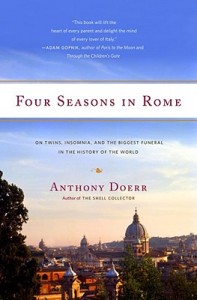 Anthony Doerr: Well, when some folks think “research,” they probably picture a monk in burlap hunched over a table deep in the cellar of a medieval library. But for me research is a big word that encompasses a lot of different activities, all of them based around curiosity. Research is also traveling to places, or studying snowflakes with a magnifying glass, or excavating your memories. Research is going to the World Center for Birds of Prey like I did a couple of months ago, where a friend opened a steel cabinet, slid out the top drawer, and showed me a passenger pigeon with a paper tag tied around its left ankle: “Chicago Market, 1886.”
Anthony Doerr: Well, when some folks think “research,” they probably picture a monk in burlap hunched over a table deep in the cellar of a medieval library. But for me research is a big word that encompasses a lot of different activities, all of them based around curiosity. Research is also traveling to places, or studying snowflakes with a magnifying glass, or excavating your memories. Research is going to the World Center for Birds of Prey like I did a couple of months ago, where a friend opened a steel cabinet, slid out the top drawer, and showed me a passenger pigeon with a paper tag tied around its left ankle: “Chicago Market, 1886.”
So, yes, yes, I very much use writing as an excuse to research, and research as an excuse to procrastinate. The world is so fundamentally interesting and it makes me fall in love with it a dozen times a day. I learned the other day that the Yaghan language in Tierra del Fuego (there is supposedly only one speaker left) had several versions of the verb ‘to bite,’ including one that meant to ‘come surprisingly on a hard substance when eating something soft, e.g. a pearl in a mussel’. And here’s something amazing and absolutely horrifying from the Nuremberg Trials—I found this last week: “The removal from Ukraine of surplus agricultural products to provide the Reich with supplies is possible on condition that the internal consumption in Ukraine should be reduced to the minimum. This will be achieved through the following measures: 1. The destruction of the unnecessary mouths, and residents of big Ukrainian cities, such as Kiev, will be getting no food supplies at all; 2. Through cutting to the maximal food quota for Ukrainian urban dwellers…” “The destruction of excess mouths?” Are you kidding me? In three sentences they advocate mass murder and state-sponsored starvation, and all of it worded in that bureaucratic, mindless prose; it’s terrifying, really, when you realize: This was real.
As to when one knows if one is “on to” something, I’m not sure I do sometimes, not for years. I keep a journal and try to write down things I find interesting and eventually, one hopes, 5% of the things one learns, or the faces one sees, or the skies one observes, eventually get folded into something fictional. The key is to try to stay open, to stay comfortable enough and free enough in one’s own life that you don’t get too self-absorbed, too busy, too blinded to the wonders all around you. And this is not easy, believe me; I struggle with it every day. There’s a lovely line from Murakami’s book on running that speaks to this:
To keep on going, you have to keep up the rhythm. This is the important thing for long-term projects. Once you set the pace, the rest will follow. The problem is getting the flywheel to spin at a set speed—and to get to that point takes as much concentration and effort as you can manage.
So for me part of research and living is trying (though I often fail) to keep that flywheel spinning at the set speed, to leave time for dreaming and reading and being in the world, as well as gutting it out at the desk.
I am floored by that fragment from the Nuremberg Trials; it’s so harrowing and appalling. What a perversion of language! It made me think of what George Orwell once wrote: “no book is genuinely free from political bias. The opinion that art should have nothing to do with politics is itself a political attitude.” Particularly given that—as you said of your research—this stuff is real, I’m led to wonder: Do you agree that writing is inherently political? What might this mean for the responsibilities of the writer, or for your aspirations for a historical project such as your novel-in-progress?
Yes, I do agree; writing is inherently political, and moral, too. Even if my own goals are humble enough, as they usually are—mostly I hope only to make a seamless fictional landscape, and to nudge readers toward the miracles of the world—upon reflection that’s probably a political thing, too. To say to myself, and hopefully to a reader: Look at this life we’re living, look how enormous the scales of time are, look at other creatures not as a hierarchy atop which humans sit, but as a continuum, as voyagers on the same journey—this is political. My goal might be only to shine a feeble light on some neglected corner of the world, or history, but ultimately my goal is to help us all appreciate the grandeur of this incredibly old and marvelous situation we’ve lucked into it, and that’s a political motivation. It’s the hope that through art we can be awakened; we can be shown the world with new eyes. I’m more interested in what Percy Walker called “the search” in The Moviegoer, that quest for authenticity that his protagonist Binx goes on.“The search,” Binx says, “is what anyone would undertake if he were not sunk in the everydayness of his own life… To become aware of the possibility of the search is to be onto something. Not to be onto something is despair.” That’s what fiction writing does for me; it helps me feel like I’m onto something, even if I’m fumbling after it, even if I know I can never really grab hold of it.
I’m fumbling with ideas here that I can’t fully articulate, but that, I think, is the real responsibility for a literary writer; to strive toward complexity, toward questions, and away from certainty, away from stereotype.
Absolutely. That’s a great working definition of literary fiction. Has your process for undertaking “the search” in your own writing changed over the years, or from project to project?
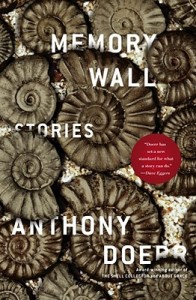 I’m not sure it has. Maybe I’m a bit more comfortable with the fact that I never really know what I’m doing. I think it scared me at the beginning—I assumed all the “real” writers out there knew exactly what they were setting out to write each time they sat down. I’ve been around long enough now to know that most writers are like me, fumbling down hallways in the dark.
I’m not sure it has. Maybe I’m a bit more comfortable with the fact that I never really know what I’m doing. I think it scared me at the beginning—I assumed all the “real” writers out there knew exactly what they were setting out to write each time they sat down. I’ve been around long enough now to know that most writers are like me, fumbling down hallways in the dark.
And I suppose having kids has certainly changed my relationship with my work—with everything, probably. I understand my parents better, I think about my own death. I’ve even begun to understand fear itself better, and I think all of this is because I’ve become a dad. Because when you watch your kids begin to grow up, you cannot help but feel your impermanence more acutely; you cannot help but see how you are one link in a very long chain of parents and children, and that the best thing you have ever done and ever will do is to extend that chain, to be a part of something greater than yourself. That’s really what it means, for me, to be a father—my sons continually remind me that I am taking part in something much larger than my own terrifyingly short life.
I wonder if perhaps your ability to articulate so much of the inherent meaning of such an experience is related to your cultivation of self-awareness as a writer. Some writers say that all characters are reflections of the self. Is self-reflection a practice that you intentionally engage with for your own work, or one that you teach to your students?
Well, on the surface, certainly, my characters are obviously different than me. An elderly Chinese woman who keeps seeds, or a teenaged orphan girl from Kansas, or a demented wealthy widow in Cape Town, or an old Canadian malacologist living in Kenya—those people aren’t me at all.
But maybe, yes, fundamentally I’m writing about myself, my own fears and loves and interests, regardless of the packaging I create around those things. I keep a daily journal and have for two decades now. And though it’s not exactly a place where I write about my own feelings every day, I do use it to stay in practice, and to translate how I see the world into language. So it is, by one definition, a place for self-reflection. And I urge students to keep a journal too, because I believe it can be a gateway to fiction. That said, in my work and in the stuff I like to read, I’m wary of too much interiority—I’d rather see different places, see people act—I’d rather see a writer observe the world, turn her eyes outward.
Also, as a husband and father of young children, is it a challenge to balance your personal and professional lives?
Yes. But slowly we are figuring it out. The key for me has been to rent a little office away from our house, where I can go to work like anybody else. If I’m trying to work at home, I get sucked quickly into Lego-building or trampoline-jumping or waffle-making.
I’d like to return to your aforementioned idea that fiction must “strive towards complexity.” Your readers often see the end results of that striving, realized through the specialized, insider knowledge you use for such powerful effect A familiar example to readers might be “The Shell Collector,” wherein you use the language and ideas of conchology for several purposes: to create authenticity for a character in this field, to serve as metaphors (the shell collector is as hermetically withdrawn into his own enclosed world as a mollusk pulled back into it’s shell), and to generate movement and tension in the plot. What is your approach to engaging with factual information for fictive purposes? How do you transform this fascination with cool stuff into elements that do real work for a story’s theme and the reader’s experience?
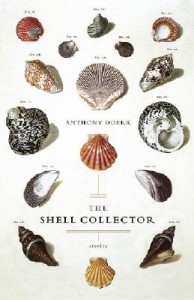 For me this only comes with hard work and lots of time. Sometimes a metaphor is out there, floating just beyond the reaches of your fingertips, and over time, as you fumble after it, you start to feel as if you might be entrapping it, only to watch it fly out of reach again and again. Usually for me connections between material and character, between subject and place, come to me gradually, months into a story, on some Tuesday when you’re doing dishes or walking the dog or driving your kids to swimming lessons. You start thinking about your story again, running through some of the choices you’ve made, and asking yourself why some choices seem to be working and some not working, and then, all by yourself, you start seeing how maybe the shell collector’s blindness could work as a metaphor for a snail living inside a shell, and then you start asking yourself how you might tease that out more emphatically so that not only you see it, but a reader who reads the story (and reads it only once) might see it.
For me this only comes with hard work and lots of time. Sometimes a metaphor is out there, floating just beyond the reaches of your fingertips, and over time, as you fumble after it, you start to feel as if you might be entrapping it, only to watch it fly out of reach again and again. Usually for me connections between material and character, between subject and place, come to me gradually, months into a story, on some Tuesday when you’re doing dishes or walking the dog or driving your kids to swimming lessons. You start thinking about your story again, running through some of the choices you’ve made, and asking yourself why some choices seem to be working and some not working, and then, all by yourself, you start seeing how maybe the shell collector’s blindness could work as a metaphor for a snail living inside a shell, and then you start asking yourself how you might tease that out more emphatically so that not only you see it, but a reader who reads the story (and reads it only once) might see it.
What I work to dispel in my students is the prevailing myth that inspiration comes like a light bulb over the head, a lightning stroke to the spleen, and all we have to do as artists is wait for the lightning and then transcribe it. I think instead work comes from hundreds or thousands of hours of working through things, from pouring lots and lots of observation and thought into every paragraph, every dead-end, every false start. And I believe the magic of a good short story, in particular, comes from the compression of so many days of thought into a space that can be experienced by a reader in an hour or so. So for me it comes from spending a lot of time in the language of whatever subject I’m interested in at the moment, shells or snow or radio or violin making or whatever, and working slowly, backtracking out of lots of dead-ends, toward a concerted and unified vision.
It seems the process, too, goes back to your notion of curiosity about the world. In my humble experience, the will that it takes to pour those thoughts and observations into every paragraph for endless hours is at its best when rooted in a feeling that the story itself is working to discover something. I think of the moment in About Grace when Naaliyah says, “An amazing book…could be written about mites.” This character’s scientific fascination strikes me as fundamentally similar to a writerly curiosity, through a shared drive to explain or bring attention to phenomena we might otherwise overlook. Yet there are powerful perceived divides between the sciences and the humanities, going back to C.P Snow’s “Two Cultures,” and so on. What is it that draws you towards that grey area where the two cultures intersect?
Yeah, yeah! I love how you put that, Chris: “the will that it takes to pour those thoughts and observations into every paragraph for endless hours is at its best when rooted in a feeling that the story itself is working to discover something.” It’s like this: we don’t write what we know exactly, but rather we write to know. Writing in that sense becomes better understood as a kind of prayer, a kind of inquiry, something best done over time, repetitively, day after day. And you’re right that I often give my characters fascinations that I myself have. Look, in newspapers, science and art are written about in separate sections. On a college campus, biology labs are held in the science building and drawing classes are held in the fine arts building, a half-mile away. Artists are urged to work with passion and ardor. Scientists are urged to work with detachment, aloofness. Put on the white coat, leave your emotions in the locker, right?
Maybe it’s because I grew up with a mother who is a science teacher, and a brother who is an electrical engineer, but I believe these divisions are arbitrary. The perception that science and art are mutually exclusive fields is mostly useless. Fundamentally, artists and scientists are concerned with an identical proposition: trying to describe the world as they see it. Both attempt to understand what it means to be human.
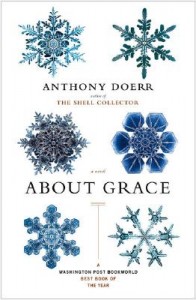 Here’s something to consider: the day-to-day lives of artists and scientists aren’t all that different. Eat breakfast, go to work, break the ice that has formed overnight, and start confronting problems. Fundamentally, whether you’re writing a novel, making a diagnosis, painting a mural, or examining volcanic rocks, you’re working through a series of problems of varying complexity.
Here’s something to consider: the day-to-day lives of artists and scientists aren’t all that different. Eat breakfast, go to work, break the ice that has formed overnight, and start confronting problems. Fundamentally, whether you’re writing a novel, making a diagnosis, painting a mural, or examining volcanic rocks, you’re working through a series of problems of varying complexity.
What draws me toward the intersections? Everything! Everything around us right now, the bacteria in our guts, the tiny radio in our cell phones, the combustion engines rumbling out the window. Go look at the nearest, humblest tree and try to really see it: messages radiate between its cells along vast networks of cytoplasm; the leaves are fending off pests and pathogens, rootlets are prowling the soil, photoreceptors are monitoring the amount of daylight, water is coursing up through xylem; sugars and nutrients are dribbling down through phloem—every weed in your yard takes part in a whirling, staggering ballet; it’s making the air we breathe, making food out of photons that have come flying 93 million miles through the crushing, cold vacuum of space—that alone is enough to make a person want to kneel down.
Wow, it is indeed. But you also write freely beyond the boundaries of the empirically observable world, sometimes even pushing towards mystic or fantastic possibilities—David Winkler’s premonitory dreams in About Grace come to mind, or Alma Konachek’s memory cartridges in “Memory Wall.” How do these two opposing forces fit together for you?
Boy, good question. I’m not sure exactly why I’m drawn to the supernatural. It probably has something with growing up reading C.S. Lewis and Tolkien and Stephen King and thousands of comic books; so much of what I read as a child involved magic, superhumans, quests against evil, etc. And I’m still interested in fabulism, in writers like Calvino or Aimee Bender or Kelly Link or Kevin Brockmeier, writers who are willing to stretch the fabric of reality in their work in order to generate compelling situations.
I grew up Catholic, too, and so I think I must be subconsciously interested in beliefs, and stories that challenge people’s beliefs. I’m interested in premonition, say, or heaven, or seizures which give a woman a glimpse of the afterlife, not because I necessarily believe those things are possible in real life, but because they help me ask myself, my characters, and my readers interesting questions about belief, about what’s possible.
To shift gears a little, I wanted to ask you about form. Two of your recent pieces, “Afterworld” and “Memory Wall,” are in the much-overlooked form of the novella or long-short story. What draws you to work of this length?
In fiction writing, form is something more useful to critics, I think, than to writers. I don’t start working on a story with any understanding of how long it needs to be, and I try not to let worries about how big a story might be enter my thoughts until the whole thing is done. (I try not to, anyway, though I admit I’m still checking word counts and page counts every once in awhile, wondering how the hell I’m ever going to get a magazine to publish something that’s over 10,000 words.)
I do know that I’m very interested in how fiction of any length can work with time, and that I got interested in this in my early twenties when I started tearing through the work of Alice Munro. I love short stories that do not compress or truncate lives (as so many contemporary short stories tend to) but expand and inflate them. Munro, I was learning, did not handle time like Cheever or Carver or Hemingway or anyone else I was reading at the time. Time didn’t have to be proportional, lives didn’t have to be snapshots. Moments could be dilated while decades vanished during a space break. Most of the stories I was reading took place over the course of a day or two, or even a single hour, the fashionable slice-of-life stories, fiction that suggested the short story was better suited to fragments. But Munro’s work splintered those expectations. Her stories taught me, over and over again, how a very good and very patient writer can evoke the memory and future of a character’s life in a handful of pages. So while I’m not consciously decided to write very long stories, I do feel liberated by Munro—I feel like I can try to write a saga like “The Caretaker” in fifty pages, or try to engage multiple points-of-view and multiple protagonists (as in “Memory Wall”) without saying to myself: you must write a novel.
Yes, the process of silencing those internal voices—doubt, the internal editor, the imaginary critic—is vital, I think, to being able to produce art without compromising your artistic vision or allowing yourself to be writer’s-blocked with worry about how a work will be received. I’m glad you mentioned Munro because I think finding solace in the unlikely successes of other writers could be a good way of defeating these voices. By ‘unlikely’ I don’t refer to Munro’s talent (which is, of course, incredible) but to the idea that such writers will readily take on literary stunts that might seem hard to pull off and make them appear effortless. What other writers have surprised you or influenced your sense of what fiction can and should do?
Italo Calvino, who I mentioned earlier. He’s another one who seems almost to be playing as he writes and he helps me feel that thrill you’re talking about of finding a voice who helps silence the inner critic. Calvino seems to me to be grownup down on his knees, playing around with folk tales and language, with commercial success the farthest thing from his mind. Living writers to check out? Rick Bass, Nadine Gordimer, J.M. Coetzee, Anne Carson, Andrea Barrett, Cormac McCarthy. Dead writers? Ryszard Kapuscinski. Fitzgerald. Mellville, of course. Woolf. Conrad. Katherine Anne Porter. Sebald.
Lastly, how would you characterize your new collection within the scope of your personal cannon, and what can readers look forward to encountering in Memory Wall?
Maybe I have to tell myself this, because every artist wants to believe he or she is getting better, evolving, improving, but I think this new book is my best work so far. I’m growing up, I’m doing my best to use fictional situations to ask questions about big, political, charged issues like apartheid, Alzheimer’s, dam-building, infertility, environmental destruction, even the Holocaust. What I hope is that with this book I can show a few more readers that story collections are still relevant, and that in many ways they can be more encompassing, more wide-ranging, and more explosive than novels.
Further Links and Reading:
- In a recent New York Times op-ed entitled “Getting Rich on Fungus,” Anthony tells a story of hunting for the elusive morel mushroom.
- The latest iteration of Doerr’s column in the Boston Globe reviews several books that delve into the world of insects. Read “Wild Kingdom, writ small” in the On Science section of the Globe.
- Finally, read Polly Rosenwaike’s wonderful review of Memory Wall in The Chronicle.

